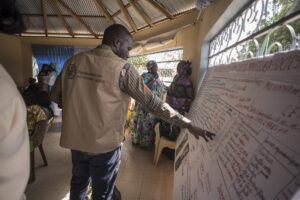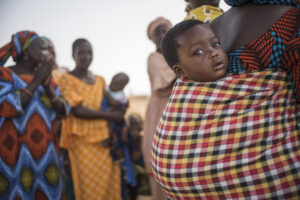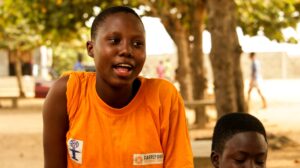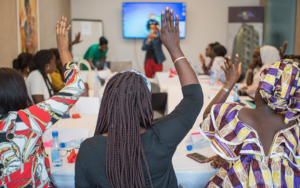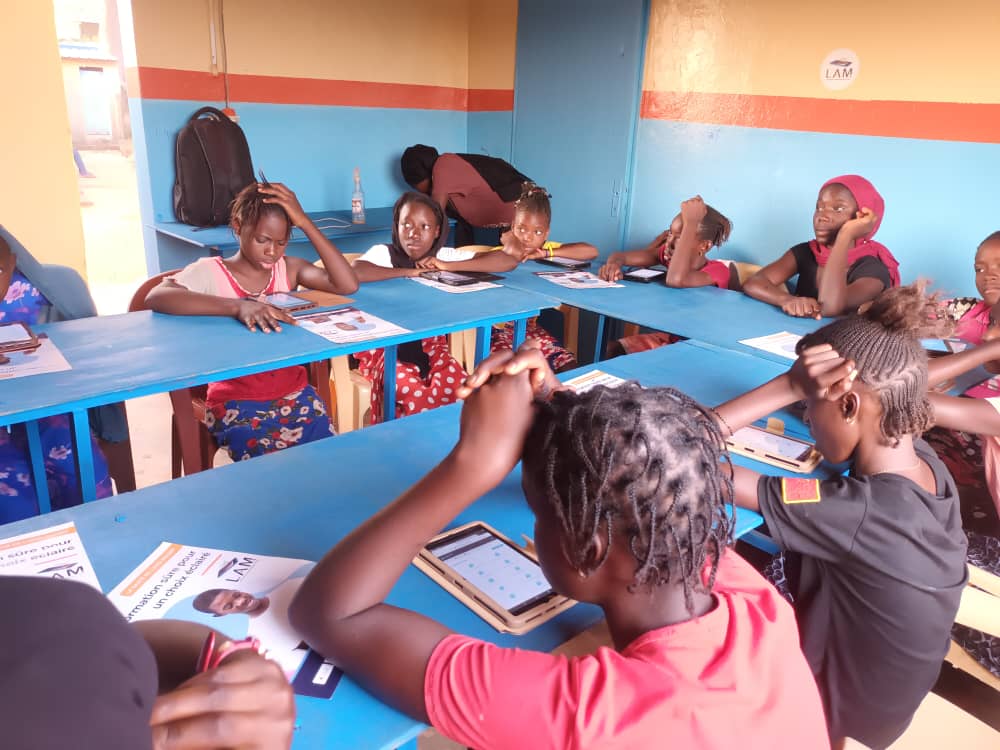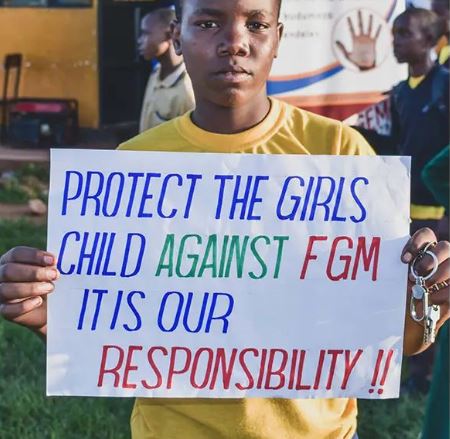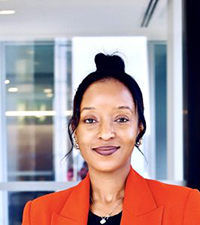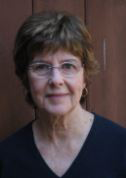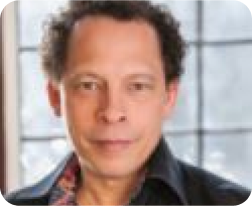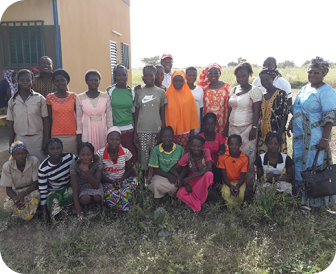By Robert Trudel, Crossroader in Ghana
 As a lawyer who practiced for many years on behalf of survivors of violence in Quebec, I know that legal measures and sentencing in court alone are not enough. Gender-based violence reduction must be accompanied by tools to prevent abuse and support access to justice for victims of violence.
As a lawyer who practiced for many years on behalf of survivors of violence in Quebec, I know that legal measures and sentencing in court alone are not enough. Gender-based violence reduction must be accompanied by tools to prevent abuse and support access to justice for victims of violence.
I am witnessing the same situation today as an overseas volunteer in Ghana with Crossroads International. As the Coordinator of the Court Watch program for Crossroads’ local partner, Women in Law and Development in Africa (WILDAF), my role is to oversee if and how Ghana’s Domestic Violence Act is being applied in the country’s courts. Unfortunately, it is not. However, the desire for change is palpable, and change is occurring.
Ghana’s efforts against domestic violence are in many ways in its first stages compared to Quebec and Canada. Yet, as the #MeToo movement makes clear, our path is far from complete at home. While the contexts are different and the solutions may vary, one fact is consistently inescapable: men around the world must recognize that violence is never OK, that power must be shared by both genders, and that everyone, everywhere will benefit from greater equality.
As far back as 1982, as Director of a community legal clinic in Montreal, I was a part of a group who recognized that domestic violence was not being taken seriously by the police, prosecutors, or judges. We developed an intervention guide for court actors, helping things to improve over the years. Social attitudes around domestic violence have steadily changed and governments have invested significantly in prevention and to support community organizations.
Since then, Quebec and Canada have made strides in facilitating access to justice for women. Still, women are confronted by violence. Misogynistic attitudes and gender-based violence persist.
I have volunteered in eight countries in the global south over the last 18 years. In Ghana, the situation for women is particularly dire. Countless Ghanaian women report experiencing at least one form of domestic violence, and discriminatory cultural norms limit women’s full exercise of their rights. This discrimination hinders access to justice.
This is happening in spite of excellent domestic violence legislation in Ghana. The Domestic Violence Act covers a wide range of topics, from legal penalties to a shelter system. If the legislation were applied, it could change things significantly. However, the law has evolved more rapidly than the local culture has, and domestic violence is still not prosecuted. This is due in part to the fact that there are no resources allocated for the support of measures that we know from the Canadian experience must exist to serve survivors.
The scope of the struggle though is not a cause for despair. In every country I have volunteered, I have been inspired by people working locally to advance and make progress. I am proud that I can play a small role in contributing western experience to building capacity for organizations like WILDAF in the South. In the true spirit of international cooperation, Canadians have both knowledge to share and lessons to learn. For example, Crossroads is supporting WILDAF’s launch of Boys for Change Clubs this fall. This terrific initiative is helping boys learn about healthy relationships, and to challenge harmful cultural norms that deny girls and women their basic rights.
Living in a truly global village – we see everything now and we are all connected by a global consciousness – many men are wondering how they can respond and contribute to the elimination of systemic violence against women. The answer is simple. We must lead by example.
My experience as an overseas volunteer has left an indelible mark on my soul. I suspect it is the same for others who have served abroad. As volunteers we use the skills, experiences, and passions we have to make a difference. I would like to encourage my fellow men to consider the power they have to change the lives of those around them, and those around the world.

